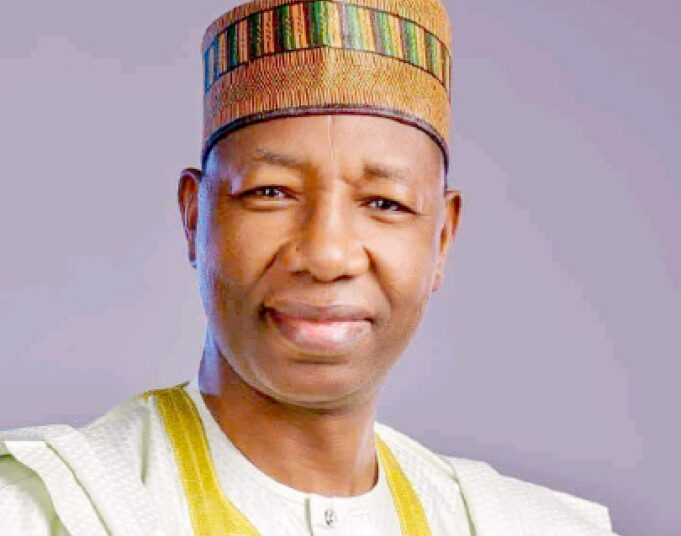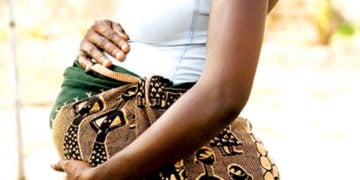This piece’s first and second parts, featured last week and the week before, contained the memorandum I submitted to the Ad-Hoc Committee established by the Federal House of Representatives to investigate the National Hajj Commission of Nigeria (NAHCON). When it was my turn to present to the Committee, I spoke to the paper rather than reading the document. I learned a great deal from the presentations of other participants who spoke before me, which allowed me to add more points to my original submission.
This Ad-Hoc Committee has done its homework diligently. The Chairman, Honourable Sada Soli, is knowledgeable and committed to thoroughly investigating the issues surrounding NAHCON in general and Hajj 2024 in particular. I plan to write a series on what transpired during the Hajj Public Hearing at the National Assembly soon, but for now, I will focus on my submission.
There is no need to repeat what my memorandum contained, as the first part of this piece included it in its entirety.
Investigate Hajj 2022/23 As Well
I urged the Committee to broaden the scope of its investigation to include Hajj 2022 and 2023 for a more comprehensive overhaul of the Hajj industry.
Undoubtedly, Hajj 2024 was an improvement over the 2022 and 2023 pilgrimages. For instance, in Hajj 2022, one of the airline companies bid USD 50 less, but when the final ticket fare was announced, this reduction was not reflected in what the pilgrims paid. Every approved air carrier received equal payment, including those that did not request full payment. Why should I be compensated for something I did not request?
In Hajj 2022, many pilgrims were not accommodated properly and did not receive adequate meals at the Mashaa’ir, yet no refunds were issued to them.
During the airlift preparations for Hajj 2023, all designated carriers requested an additional USD 200 on the agreed rate—Max, Air Peace, and Azman. They claimed this was due to the closure of the Sudan airspace. Fly Nass did not request this additional fee, yet all pilgrims were charged the extra USD 200, including those who flew with Fly Nass. The issue of refunding those pilgrims was never raised.
Additionally, in Hajj 2023, thousands of pilgrims were accommodated outside the Markaziyyah (Central) area of Madinah, which is the vicinity surrounding the Prophet’s Masjid. Pilgrims staying in this area can easily access the Mosque without the long walk faced by those accommodated outside this preferred location. The fact that pilgrims placed outside the Markaziyyah area during Hajj 2023 received no compensation for subpar services is concerning.
Approved 2024 Hajj Fare
I brought to the Committee’s attention some items in the Approved 2024 Hajj Fare released by NAHCON. This annual ritual involves announcing the Hajj fare according to various components of Hajj operations. This year’s fare includes 27 chargeable items that contribute to the price per pilgrim. NAHCON should not announce Hajj prices for states; it should instead set standards and guidelines for services rendered to Nigerian pilgrims and ensure compliance, penalising errant entities as necessary. States should determine their Hajj fare based on the quality and proximity of accommodations to the Haram and other logistical considerations, subject to NAHCON’s approval. Uniform fares for Hajj are impractical, as hotels vary in location, service quality, and amenities.
The Ministry of Hajj deposits of SAR 50.00 are listed as item No. 7 in the Approved 2024 Hajj Fare. Why must each pilgrim pay this amount, and is it refundable? If so, who has ever received this refund, and when?
Feeding at the airport is item No. 8, requiring pilgrims to pay SAR 20.00 each. It is problematic when pilgrims are served takeaway meals in plastic bags before boarding buses from Makkah to the airport for their return trip to Nigeria. (1) The pilgrims paid for meals throughout their stay in the Kingdom, so this takeaway meal should differ from the SAR 20.00 airport meal, which is a separate charge. (2) The SAR 20.00 was intended for hot meals, chilled juices, and fruits at the airport while waiting to board their flights. The purpose of this arrangement is undermined when they receive takeaways in plastic bags from Makkah. (3) Each pilgrim who did not receive this meal at the airport should be refunded SAR 20.00.
Regarding feeding (No. 9), each pilgrim was charged SAR 1,225 for 35 days of meals at SAR 17.5 per meal, even though not all pilgrims stayed for the full 35 days. This charge is based on a half-board arrangement—breakfast and dinner—totalling SAR 35 per pilgrim daily. This contract does not account for the five-day Mashaa’ir Package (contract), which includes meals, for which each pilgrim paid SAR 4,770 (item No. 5). Consequently, pilgrims are effectively paying twice for meals in both item 9 and item 5 of the NAHCON Approved 2024 Hajj Fare. The cost for the five-day meals per pilgrim is SAR 175. This issue must be addressed.
Official Hajj Visa
Every year, the Saudi Hajj authorities allocate a certain number of official Hajj visas to officials in all countries participating in Hajj operations. This special Hajj visa grants privileges and facilitates easier access to areas where the regular Hajj visa has restrictions. However, NAHCON denies such visas to private Hajj operators in Nigeria. For Hajj 2024, NAHCON received 850 of these visas from Saudi Arabia, distributing them as follows: 650 to administrative officials, 150 to medical personnel, and 150 to media representatives—none were allocated to Private Hajj Operators. Is there any entity more deserving of these visas than state pilgrim officials and Private Tour Operators? Why should these visas go to individuals who do not have a single pilgrim?
Induction Course For Intending Pilgrims
Item No. 22 of the 2024 Hajj Fare set by NAHCON charged N5,000 per pilgrim for an enlightenment programme. With the total number of pilgrims for that year, this amounts to a significant sum. Why must the pilgrim pay to be educated about Hajj rites when the NAHCON Act, Section 4(1)(g), mandates that it conduct enlightenment campaigns for Hajj and Umrah in all states of the federation and the Federal Capital Territory?
The pilgrim enlightenment program should cover Hajj rites, restroom/ elevator usage, currency identification, and more. Virtual Reality (VR) could immerse pilgrims in the Holy vicinity before their journey, giving them a feel of the Haram while still in Nigeria. Airline companies contracted to carry Nigerian pilgrims for Hajj should be required to show NAHCON’s enlightenment videos during flights so that pilgrims can refresh their knowledge before arriving in Saudi Arabia. Does NAHCON have a template for pilgrim education? If not, isn’t it high time it developed one?
Payment By Bank Draft
My grandmother paid for her Hajj seat via a bank draft, and today, her great-grandchildren still witness this payment method, even as banking has gone digital and people rarely use cheques for cash withdrawals.
Why is the payment for Hajj seats still conducted via bank draft? Why not transition to online payment for greater efficiency and convenience? Why can’t there be a fully automated system that simplifies the Hajj process from payment through to accommodation assignments in Makkah, Madinah, and Mashaa’ir? Pilgrims should be informed of their flight details and return dates according to the timing of their payment. As a writer once said, “One of the signs of insanity is doing the same thing over and over and expecting different results.”
In conclusion, this Ad-Hoc Committee of the Honourable House of Representatives must address these systemic issues to ensure Nigerian pilgrims receive the quality of service and accountability they deserve.
By expanding the scope of the investigation to include earlier Hajj operations, revisiting pricing structures, and implementing modern payment methods, Nigeria can significantly enhance the pilgrimage experience for its citizens. Consideration of these recommendations is not just about improving logistics; it is about respecting the faith and sacrifices of millions of pilgrims who undertake this sacred journey.
The hope is that through this investigation and the subsequent reforms, Hajj operations can reflect the dignity and reverence that such a spiritual endeavour warrants.





